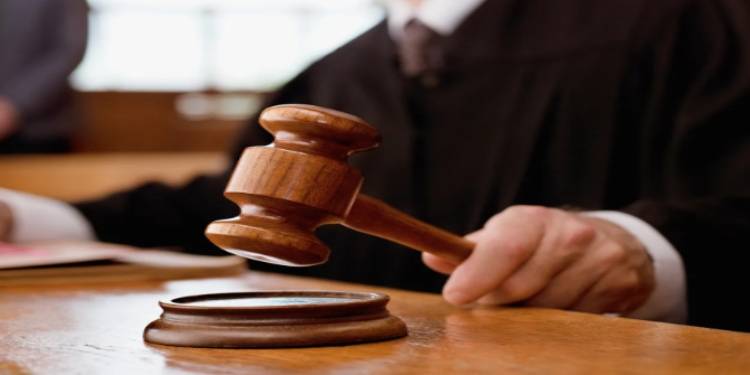
Justice Aminuddin Khan has recused himself from a five-member bench hearing the case related to the delay in elections after an apex court’s order halted proceedings under Article 184(3).
Around 11:30, the Supreme Court was scheduled to continue hearing the Pakistan Tehreek-e-Insaf's (PTI) appeal against the ECP's decision to postpone the elections in Punjab and Khyber Pakhtunkhwa. But, the hearing was postponed due to Justice Aminuddin's recusal.
Since Monday, the case has been heard daily by a five-member larger bench led by Chief Justice of Pakistan (CJP) Umar Ata Bandial and consisting of Justices Ijaz Ul Ahsan, Munib Akhtar, Amin-Ud-Din Khan, and Jamal Khan Mandokhail.
Following the ECP's decision to push the Punjab elections from April 30 to October 8 due to the financial and security agencies' acknowledged inability to support the electoral process, the PTI filed a petition with the Supreme Court.
Judge Mandokhail discussed the case's merits during yesterday's hearing because the Supreme Court had not yet issued an order of the court.
One of the contentious issues in the plea is whether the Supreme Court's March 1 decision was upheld by a 4-3 majority or rejected by a 3-2 majority.
On Wednesday, a three-member bench of the Supreme Court ruled that hearing of all cases under Article 184(3), which is related to the CJP’s suo motu powers, be postponed till amendments in the SC rules.
“The interest of citizens therefore will be best served to postpone the hearing of this case, and of all other cases under article 184(3) of the Constitution, till the matters noted hereinabove are first attended to by making requisite rules in terms of article 191 of the Constitution,” the order read.
The ruling came during a suo motu hearing on granting additional marks to a medical student. Besides Justice Faez, the bench comprised Justices Amin-ud-Din Khan and Shahid Waheed. Justice Waheed dissented with the majority opinion.
According to the order, the Supreme Court rules neither permit nor envisage special benches, however, a special bench comprising three judges was constituted to hear this case.
Around 11:30, the Supreme Court was scheduled to continue hearing the Pakistan Tehreek-e-Insaf's (PTI) appeal against the ECP's decision to postpone the elections in Punjab and Khyber Pakhtunkhwa. But, the hearing was postponed due to Justice Aminuddin's recusal.
Since Monday, the case has been heard daily by a five-member larger bench led by Chief Justice of Pakistan (CJP) Umar Ata Bandial and consisting of Justices Ijaz Ul Ahsan, Munib Akhtar, Amin-Ud-Din Khan, and Jamal Khan Mandokhail.
Following the ECP's decision to push the Punjab elections from April 30 to October 8 due to the financial and security agencies' acknowledged inability to support the electoral process, the PTI filed a petition with the Supreme Court.
Judge Mandokhail discussed the case's merits during yesterday's hearing because the Supreme Court had not yet issued an order of the court.
One of the contentious issues in the plea is whether the Supreme Court's March 1 decision was upheld by a 4-3 majority or rejected by a 3-2 majority.
On Wednesday, a three-member bench of the Supreme Court ruled that hearing of all cases under Article 184(3), which is related to the CJP’s suo motu powers, be postponed till amendments in the SC rules.
“The interest of citizens therefore will be best served to postpone the hearing of this case, and of all other cases under article 184(3) of the Constitution, till the matters noted hereinabove are first attended to by making requisite rules in terms of article 191 of the Constitution,” the order read.
The ruling came during a suo motu hearing on granting additional marks to a medical student. Besides Justice Faez, the bench comprised Justices Amin-ud-Din Khan and Shahid Waheed. Justice Waheed dissented with the majority opinion.
According to the order, the Supreme Court rules neither permit nor envisage special benches, however, a special bench comprising three judges was constituted to hear this case.

